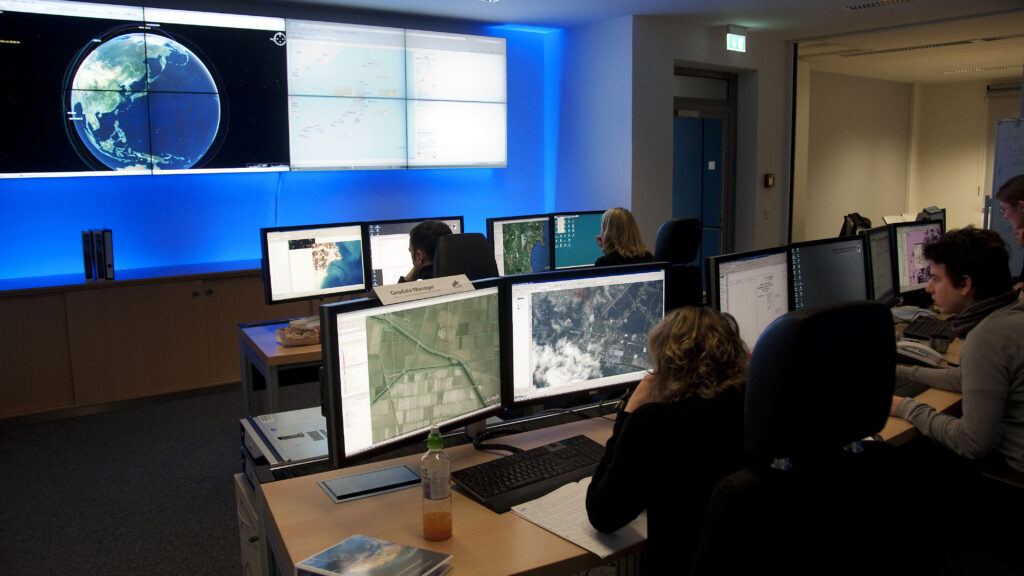
In our digital world, an Information Technology Manager (IT Manager) plays a very important role. As companies depend more on technology, these managers help keep everything running smoothly. In this blog post, we will explore what an IT manager does, the skills they need, and why this job is exciting.
What is an Information Technology Manager?
An Information Technology Manager is responsible for overseeing all the technology in a company. They make sure that computers, software, and networks work well. Think of them as the leaders of the tech team, helping everyone use technology effectively.
Key Responsibilities
1. Leading the Team
One main job of an IT Manager is to lead a team of tech workers. This includes hiring new team members, training them, and making sure everyone is doing their best. A good leader inspires their team to learn and grow.
2. Managing Technology
IT managers oversee the company’s technology. They ensure that all systems—like computers and networks—are running properly. If something goes wrong, it’s their job to fix it.
3. Handling Projects
IT Managers lead various projects, such as setting up new software or upgrading systems. They plan these projects carefully, making sure they finish on time and within budget. Good project management is key to success.
4. Budgeting
Another important responsibility is managing the IT budget. IT Managers decide how much money to spend on technology and make sure they stay within that budget. This helps the company use its resources wisely.
5. Planning for the Future
IT Managers help plan how technology will be used in the future. They look at the company’s goals and figure out how technology can help achieve those goals. This planning is crucial for staying competitive.
6. Ensuring Security
With so many cyber threats today, IT Managers must keep data safe. They set up security measures to protect sensitive information from hackers. Keeping data secure is one of their top priorities.
7. Working with Vendors
IT Managers also work with vendors who supply software and hardware. They negotiate deals and ensure the company gets the best products for its needs. Good relationships with vendors can lead to better support and prices.
8. Supporting Employees
IT Managers make sure that all employees have the support they need to use technology effectively. They oversee help desks that assist employees with tech issues and provide training to help everyone feel comfortable with new tools.
Essential Skills for an Information Technology Manager
To be successful, an Information Technology Manager needs a mix of skills:
1. Technical Knowledge
IT Managers must understand how technology works. This includes knowing about computers, networks, and software. Staying updated on the latest trends is also important.
2. Leadership Skills
Being a good leader is crucial. IT Managers need to inspire their teams and create a positive work environment. Good leadership helps the team work better together.
3. Problem-Solving
Technology can be tricky, and problems can arise at any time. IT Managers must be good at solving problems quickly. This ability keeps everything running smoothly.
4. Communication Skills
IT Managers need to explain technical ideas clearly to others who may not be tech-savvy. Good communication helps everyone understand and work together effectively.
5. Project Management
Knowing how to manage projects is important. IT Managers should be able to plan, execute, and monitor projects to ensure success.
The Changing World of IT Management
The role of an information technology manager is always changing. Here are some trends that are shaping this job:
1. Focus on Security
With more cyber threats, IT Managers are focusing on security more than ever. They need to keep up with the latest security measures to protect the company’s data.
2. Embracing Cloud Technology
Many companies are using cloud technology, which allows data to be stored online. IT Managers must understand how to manage and use these cloud services effectively.
3. Using Data Wisely
Data is a powerful tool for making decisions. IT Managers should know how to analyze data to help the company improve its operations.
4. Supporting Remote Work
With more people working from home, IT Managers need to provide tools that help employees stay connected and productive. This requires adapting to new technologies.
Conclusion
The role of an Information Technology Manager is essential in today’s technology-driven world. From leading teams to managing projects, IT Managers help organizations thrive. They ensure that technology supports the company’s goals and keeps everything running smoothly.
Whether you are interested in becoming an IT Manager or just want to understand the role better, it’s clear that this job is exciting and full of opportunities. By embracing technology, IT Managers can make a big difference in their organizations and help shape the future.

Frequently asked questions (FAQs) about the role of an Information Technology Manager:
What does an information technology manager do?
An Information Technology Manager oversees a company’s technology infrastructure. Their responsibilities include managing IT teams, ensuring systems run smoothly, handling projects, budgeting, and maintaining data security.
What skills are required to be an IT Manager?
Key skills for an IT Manager include technical knowledge of systems and networks, leadership abilities, problem-solving skills, effective communication, and project management expertise.
How does an IT manager ensure data security?
An IT Manager implements security measures, conducts regular audits, educates staff on best practices, and stays updated on the latest cybersecurity threats to protect sensitive information.
What is the importance of project management in this role?
Project management is crucial for IT Managers as it helps them plan, execute, and monitor technology projects effectively. This ensures that projects are completed on time and within budget while meeting company goals.
What trends are currently shaping the role of IT Managers?
Current trends include a focus on cybersecurity, the adoption of cloud technology, the use of data analytics for decision-making, and supporting remote work environments. IT Managers must adapt to these changes to keep their organizations competitive.